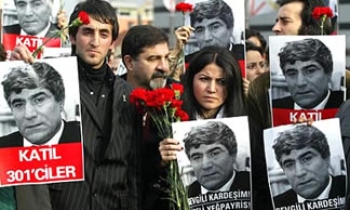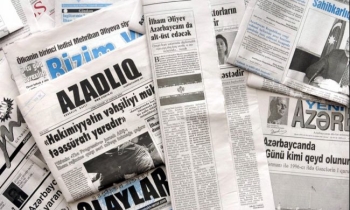ISLAMABAD, Feb 19 (Reuters) - Police fired teargas and rubber bullets to break up a banned protest against cartoons of the Prophet Mohammad in Islamabad on Sunday and Denmark said its ambassador to Pakistan had returned home for security reasons.
The government banned the demonstration after similar protests in Pakistan turned violent, with at least five people killed in the past week.
The Muttahida Majlis-i-Amal (MMA), an alliance of six Islamist parties, said its followers would defy the ban and around 1,000 protesters managed to congregate near a central bazaar, chanting religious and anti-government slogans.
Denmark said its ambassador to Pakistan had returned home.
"The Danish ambassador in Pakistan, Bent Wigotski, has returned temporarily to Denmark because it is practically impossible for him to do his job under the current circumstances," the Foreign Ministry said in a statement.
Lars Thuesen, Director General of Denmark's Consulate Service, said the envoy's departure was for security reasons.
The 12 cartoons, including one depicting the Prophet with a bomb in his turban, were published by Danish newspaper Jyllands-Posten last year and reprinted in many newspapers, mainly in Europe, as part of a debate about the rights and responsibilities of free speech. Many Muslims believe it is blasphemous to depict the Prophet.
Protests have turned violent in several countries, including Libya, where 11 people died, and Nigeria, where 15 people were killed in rioting on Saturday. Nigerian officials had earlier put the death toll from the cartoon protest at 16.
Troops patrolled the Nigerian city of Maiduguri on Sunday to prevent further violence.
In Saudi Arabia, newspapers printed an apology by the Danish paper. "Allow me in the name of Jyllands-Posten to apologise for what happened and declare my strong condemnation of any step that attacks specific religions, ethnic groups and peoples," wrote Carsten Juste, the editor of Jyllands-Posten.
"It is extremely important to point out that the aim behind these cartoons was not to attack the Prophet at all or devalue him, but as an opening to dialogue on freedom of expression."
EMBASSY CLOSED
Flemming Rose, Jyllands-Posten's culture editor, wrote in Sunday's Washington Post that his newspaper had meant no disrespect for Islam.
"We certainly didn't intend to trigger violent demonstrations throughout the Muslim world. Our goal was simply to push back self-imposed limits on expression that seemed to be closing in tighter," Rose wrote.
Denmark closed its embassy in Pakistan on Friday because of security concerns and urged Danes to leave the country.
Pakistan has issued diplomatic protests over the cartoons and recalled its ambassador from Denmark.
A leading Muslim cleric in the northwestern city of Peshawar has offered a reward to anyone who kills one of the Danish cartoonists who drew the pictures.
In Islamabad, demonstrators lampooned President Pervez Musharraf as a lackey of U.S. President George W. Bush.
Police and paramilitary troops patrolled the streets, barbed wire was placed across main routes and vehicles were searched.
But around 100 protesters broke through the cordons and were joined by hundreds of others from side streets. Police fired teargas and when protesters retaliated by throwing stones, fired warning shots into the air and what a local official said were rubber bullets into the crowd.
Police put MMA president Qazi Hussain Ahmed under house arrest in Lahore before he could travel to Islamabad.
Another senior MMA leader, Fazul-ur-Rehman, and a group of around 30 followers, including parliamentarians, assembled at one of the main entry points into Islamabad, but were forced to abandon their march after police fired teargas.
MMA supporters burned tyres on roads in the nearby city of Rawalpindi, where police had detained over 100 activists.
In Indonesia, more than 200 members of the militant Islamic Defenders Front pelted the U.S. embassy in Jakarta with eggs and stones to protest against cartoons of the Prophet and his depiction in a sculpture at the U.S. Supreme Court in Washington.
(Additional reporting by Simon Johnson in Copenhagen, Crack Palinggi and Benny Siahaya in Jakarta, Randall Mikkelsen in Washington)









